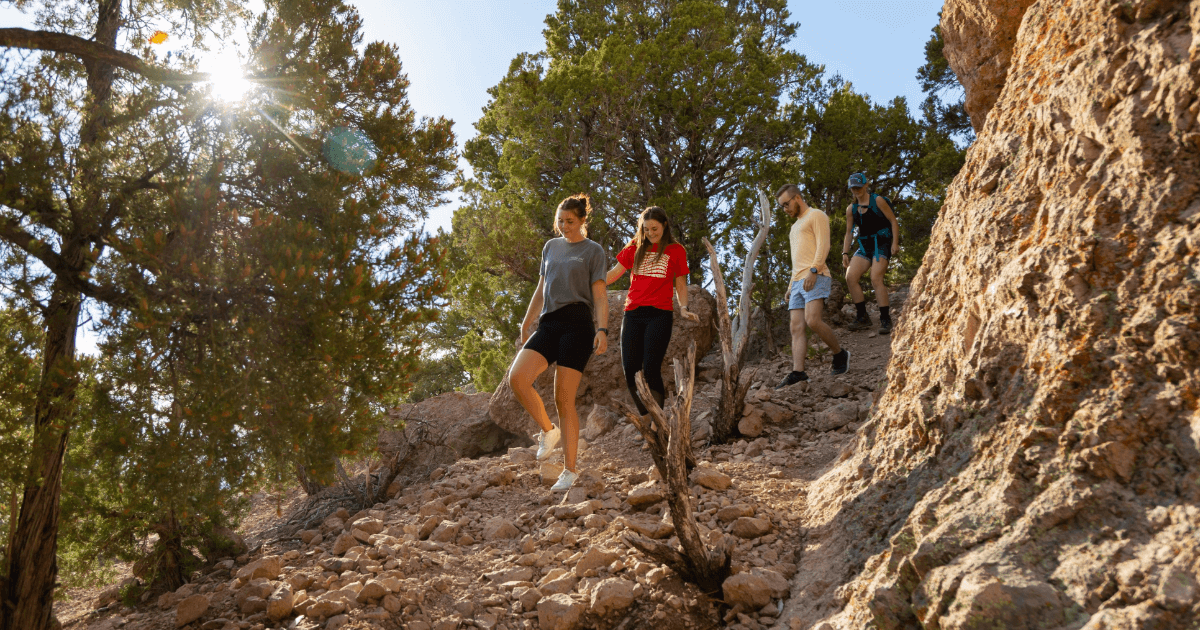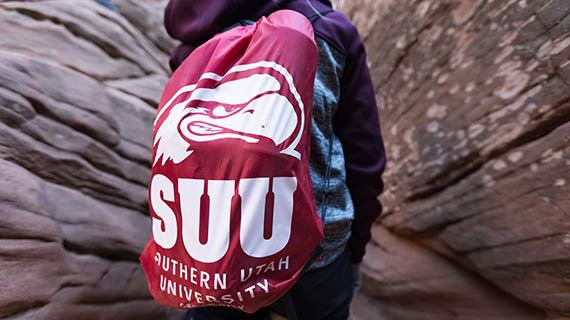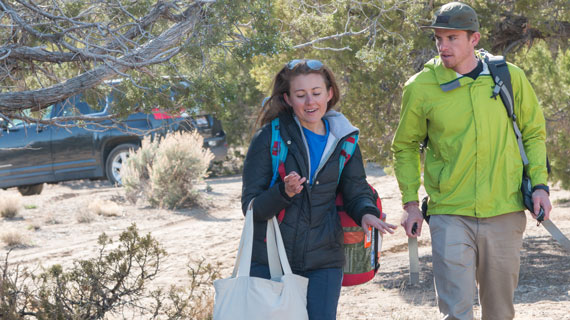Tips for Staying Safe on the Trails
Posted: July 08, 2024 | Author: Nikita Posvolskii | Read Time: 3 minutes
 With all the beautiful surrounding nature, Southern Utah University is a great place for outdoor activities. Many SUU students enjoy their time hiking or camping. However, not everyone considers hiking safety when preparing for an adventure, which can lead to unpleasant circumstances. Here are some safety tips to avoid injury and improve your hiking skills!
With all the beautiful surrounding nature, Southern Utah University is a great place for outdoor activities. Many SUU students enjoy their time hiking or camping. However, not everyone considers hiking safety when preparing for an adventure, which can lead to unpleasant circumstances. Here are some safety tips to avoid injury and improve your hiking skills!
Planning and Preparing
Planning your hike in advance is one of the most important steps in hiking safety. Knowing when and where to go will improve the experience for everyone you are hiking with. It can even save someone's life in the case of an unexpected hazard or emergency. Study a map beforehand to understand where your hike starts and ends to reduce these risks.
Be weather-ready.
Before going on a hike it's essential to assess the weather conditions. If conditions are unfavorable, it's not worth taking the risk, and it's better to reschedule the hike. Always be prepared to find shelter swiftly if you encounter severe weather. If there is a chance of rain in the area, ensure your rain gear is packed and easily accessible.
Choose the trail that matches your group’s abilities.
Acknowledge the capabilities of yourself and your hiking companions. Choose a trail that everyone can safely complete and find enjoyable. If you are hiking in a national or state park, consult the park's website or speak with a ranger to learn about the difficulty levels of various trails. Rangers are well-versed in the weather and terrain of certain areas and can offer valuable recommendations. If you have any medical needs, discuss your hiking plans with your healthcare provider beforehand.
Ensure you have reliable communication.
Avoid relying solely on your cell phone, as there may be limited or no cellular coverage in the place of your hike. If you do plan to use your cell phone, keep it fully charged. Consider conserving battery life by turning off your phone, switching to airplane mode until necessary and bringing a portable charger.
Be sure to inform someone of when and where you will be hiking. Provide an estimated time of return so that they know when to expect you back and can alert authorities if necessary.
Hiking tips
Allow the slowest hiker to set the pace.
Positioning the slowest hiker near the front helps keep the group together at all times. While this approach may extend the time needed to reach your destination, it significantly decreases the risk of anyone becoming lost and ensures immediate assistance in the event of an injury.
Track both your time and distance during your hike.
Remember that your total hiking time includes the duration it takes to travel to your destination and return to your starting point. Consider that uphill portions of your hike typically require at least twice the time it takes to descend. Stay mindful of the time you begin your hike and establish a turnaround point to avoid being outdoors after dark. If your hike exceeds your planned duration, set a turnaround time and stick to it.
Stay nourished and hydrated throughout your hike.
Hiking can rapidly decrease your energy levels. Dehydration and heat exhaustion can pose risks while on the trails, so drink water regularly, even before you feel thirsty. Research the length of your hike and the predicted temperature so you can be sure to pack enough water with you. Fuel your body with nutritious snacks like trail mix, nuts and granola bars to maintain high energy levels throughout your hike.
What to bring
Gear up with these essentials for your outdoor adventure. These things can save someone’s life and make your hike more enjoyable. Most of them you can rent or buy from SUU Outdoors.
1. Navigation: Map, compass, GPS.
2. Sun Protection: Sunglasses, sunscreen, hat.
3. Insulation: Jacket, hat, gloves.
4. Illumination: Flashlight, headlamp.
5. First-Aid: First Aid Kit, personal locator beacon.
6. Fire: Matches, lighter, fire starters.
7. Repair Kit: Duct tape, multi-tool.
8. Nutrition: Packaged food, snacks.
9. Hydration: Water bottle, water filter.
SUU students are lucky to study at the University of the Parks in such a beautiful place. It is important to remember hiking safety rules and consider the tips outlined above for your next hike. Enjoy the outdoors and have a safe hike!
Tags: Outdoor Recreation Student Outdoors



